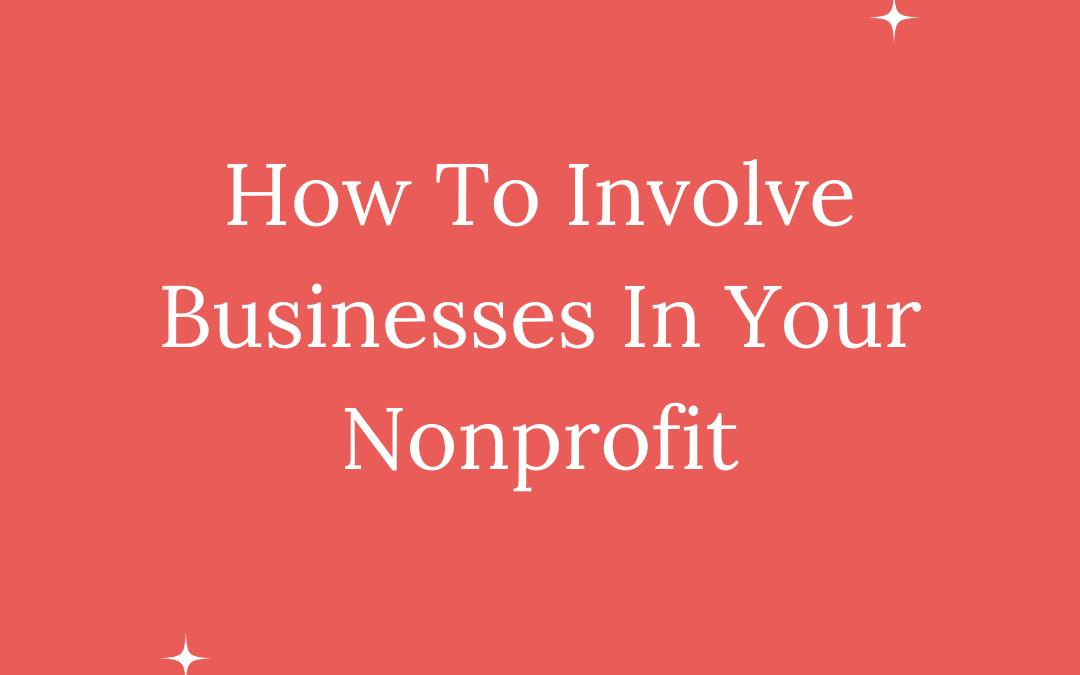BUSINESSES AMPLIFY THE GIVING POWER TO YOUR NONPROFIT
Central Oklahoma Habitat for Humanity (COHFH) attributes a significant part of its growth and success over the past 30+ years to building and sustaining partnerships within the local business community. They know how to involve and gain support from businesses in their nonprofit. This is because when a business partners with a nonprofit, the infrastructure and reach of the business amplifies its giving power resulting in far greater impact than often individual giving. Having flexibility and a dynamic corporate giving program has also allowed more businesses of various sizes to get involved with the organization.
Since 1990, businesses have donated several million dollars to further COHFH’s mission of ending poverty housing in Central Oklahoma through a combination of the following:
|
|
|
|
|
|
|
|
|
|
|
|
|
|
|
|
Symbiotic Nonprofit-business Relationships Start with Shared Values and Common Goals
But make no mistake, every business partnership is reciprocal and mutually beneficial, where the benefits outweigh any costs for either the company or nonprofit. Creating a symbiotic nonprofit-business relationship starts with shared values and common goals. Do the business’s values represent yours? Does the company’s model or industry reflect your cause? The business should operate in a way that respects your nonprofit’s perspectives and values, as well as those of your stakeholders and community.
For example, COHFH has shared an incredible corporate partnership for more than a decade with its 2021 Inspiration Award winner. The partner provided materials and labor to geo-drill 90 wells at the newest Central Oklahoma Habitat ReStore location, which helped make it the most energy efficient home-improvement store in Oklahoma City. The business has also helped COHFH with everything from boring under streets to a park in Blanchard and donating the labor to drill approximately 500 geo-thermal wells and counting at new Habitat homes. The company has also committed to help with COHFH’s next development, Cornerstone Creek, which is made up of 160-acres in far northwest Oklahoma City.
Why has this partnership lasted for so long? It goes back to the basics – the company and COHFH share the same core values, as well as Christian principles. The company also works in the same industry as COHFH – infrastructure is fundamental in developing real estate.
Business relationships like this, however, aren’t built overnight. Before you request funding or any sort of partnership from a business, know the company’s mission and areas of focus, then do your preliminary outreach. Ask a potential business partner for an initial meeting to help your nonprofit understand what opportunities exist and make sense to pursue. Communicating with company contacts can provide time-saving information and help to begin cultivating a relationship.
Another key factor is open communication. Communicating your organization’s expectations for the partnership right off the bat not only ensures the business understands what is being asked of them, but also makes sure that it agrees to them. The nonprofit and business must collaborate to determine how to measure success and define what Key Performance Indicators (KPIs) are realistic for the nonprofit to capture. Understanding the business’s motivation and what it hopes to gain from the partnership can often help define what KPIs matter most.
There are several potential benefits to partnering with a nonprofit.
- Social responsibility. It’s not enough for companies to simply sell a good product today. According to Forbes, social responsibility is defined as a business’s obligation to pursue achievable and good long-term goals for its people and the world at large. Philanthropic responsibility is one-way businesses can be socially responsible.
- Positive media coverage at little cost. Companies leverage sponsorships and partnerships to create human-interest stories about its community engagement for the media.
- Brand and reputation. When a business aligns with a respected public cause, it builds goodwill for the company. Being accountable and operating with integrity creates more loyal customers and helps with the attraction and retention of employees.
- Employee satisfaction and sense of well-being. The 2017 Doing Good Is Good for You Study, in partnership with VolunteerMatch, found 75 percent of employees who volunteer through work report feeling better about their employer. The mental and emotional benefits are even greater: 93 percent reported an improved mood, 79 percent reported lower stress levels, and 88 percent reported increased self-esteem by giving back.
- Employee professional development opportunities. Giving staff the opportunity to work with a nonprofit lets them take risks and learn in ways outside of what’s offered within their role at a company. Honing and expanding an employee’s skill set can prepare them for more responsibilities.
- Product and service improvements. Partnering with a nonprofit often provides the team with more chances to learn and improve. Nonprofits notoriously work on tight budgets, and tight budgets breed innovation. Connecting more with the local community creates a greater understanding of the market landscape.
Each of these partner benefits are equally worthy of earning a business’s ongoing support. What’s more? COHFH has found that generally once a business gets involved – whether for example, the company sends volunteers to a construction site or sees its corporate dollars at work at a family’s home dedication – that company genuinely becomes invested in COHFH’S cause. And THAT kind of support is priceless.
To learn more about the COHFH’s corporate sponsorship and volunteer programs, visit cohfh.org.
Ann Felton Gilliland
Chairman / CEO
http://www.cohfh.org/

